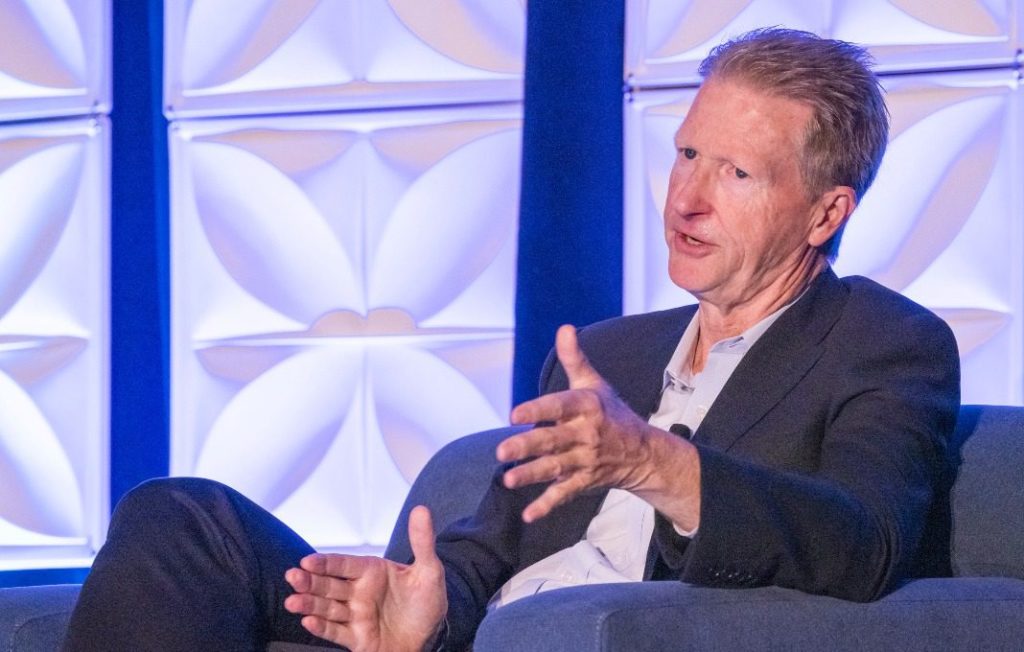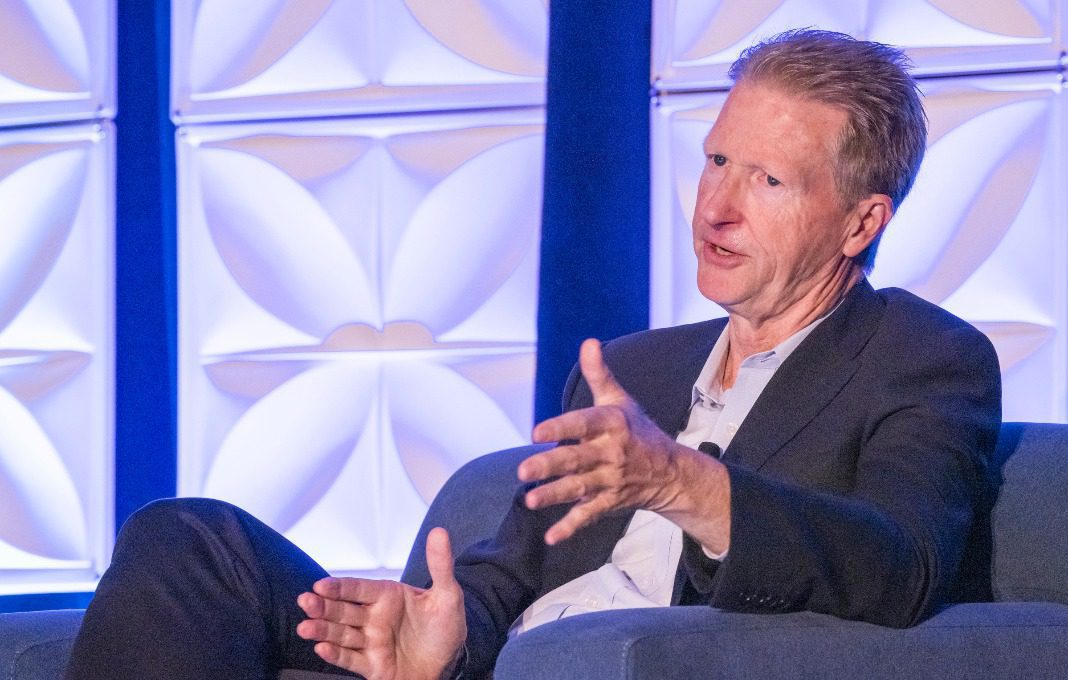
Now imagine being the CFO of Moderna, which developed mRNA technology for Covid vaccines in the course of just several weeks, jolting forward and consummating a scientific process that had begun decades earlier. Not only that, but Moderna was a tiny player in Big Pharma when it won the federal-government nod to speed up mRNA vaccines, and now it’s an outfit with more than 3,000 employees, sitting on $19 billion in cash.
“We were a company without any history of commercial operations,” David Meline told the recent CFO Leadership Council’s 12th Annual CFO Leadership Conference in Boston. “We did in 10 weeks a lot of things that companies take 10 years to do. It was an incredible, accelerated build.”
Meline is a former Amgen CEO who joined Moderna as CFO in June 2020 amid the company’s push to finalize an mRNA-based vaccine. Moderna’s effort involved advancing the science much more rapidly than ever had been anticipated, staffing up feverishly, locking in funding for its expansion, working with governments in the U.S. and around the world, and at the same time building structure into the company so that it could be a player for the long haul and bring dozens of other mRNA-based products to bear against other diseases and conditions.
“It was quite a stressful experience,” said Meline, who retired from Moderna a few weeks ago only to be brought back because of potential irregularities with his successor. “We were scaling the company at the same time we were bringing product to market, and we went through a cycle continuously where we were shifting from one to the other.”
Yet in his remarks at the CFO Leadership Council gathering, Meline was able to distill some lessons that other CFOs, perhaps in less extremely intense situations, could learn from:
• Maintain a cool head. Meline conceded that his circumstances were unusual, “but one thing I found is that being calm is a pretty good trait to have as a goal as CFO, especially in a circumstance with people jumping up and down inside and outside the company. Steadiness and rationality are helpful.”
How do you handle the stress? “Having been a leader [elsewhere] was helpful. You need to keep your wits about you and take a disciplined approach to decision-making amid a lot of uncertainty.”
• Hoard data. Data enables decision-makers to test scenarios. “Bringing analytics and analysis to the decision table really makes setting strategy a lot easier,” Meline said. “That’s applicable in any circumstance. It just happened that this [circumstance] was high-stakes for us and [dramatic] for the world.”
• Recognize the power of innovation. While the story of how Moderna crash-developed its vaccine is unique, Meline said, “It’s a really important and positive validation of the power of innovation, and of promoting innovation, especially in this field. I joined the biotech field at Amgen, and I can’t think of an area where there’s more opportunity and innovation going on.”
• Partner with governments. “This has been a really good example of a positive case study about public-private collaboration,” Meline said. “We work very closely not only with the U.S. government but with governments around the world to allow us to bring a produt to market as quickly as possible without cutting any corners on the science — which we insisted on. And there were many moments with questions about cutting corners.
“But at the end of the day, to be able to do this in a safe manner with the right level of scientific oversight, and in cooperation with governments, literally working 24×7 side by side with us, was very successful. That probably never has happened, at least in a non-war context.”
• Be selective. Given the excitement of what Moderna was trying to accomplish, the company “had the benefit of being able to attract the best expert in the world for any particular job,” Meline said. But there was also the question of a hire’s fit with the culture and the company.
“As we move into the next phase of our development, we want to ensure we preserve all the things that made the company successful thus far. We have a series of attributes of our culture that we’ve tried to capture like a genie in a bottle. We then use that to try to make sure there’s a good fit. It doesn’t do the people or the company any good if the fit isn’t right.”
• Manage egos. With so many of the industry’s leading lights joining Moderna, how does the company manage stars and get them to work together as a team? “If we bring in a bunch of stars, all of a sudden the average is their average,” he said. “People who are super-capable often are motivated by being surrounded by others like them. That’s the profile of the individuals we need to have. If you want to be a star, and everyone else is at a level that’s just competent, there are other places to find that opportunity; Moderna is probably not for those people.
“We’re very comfortable with the idea of bringing in the best talent, and people are very attracted by the proposition, given our leadership position in what could be the most exciting development in this area in the last 30 to 40 years.”
• Go it alone. Moderna could have latched on with another firm in a joint venture or been acquired early on, as many other pharma startups are. “But in our case, there is a very strong belief by the management and the board that we have an opportunity to build a company as a standalone, successful global enterprise, and that’s what we’re building,” Meline said. “Have there been moments of truth even in the last couple of years where you say, can we really do this, or not? We made the call that we thought we could [do it], and so far, so good. That gets tested very regularly and will continue to be tested.
“We have the talent, and the benefit of a very strong financial position, and the continuing challenge is to continue to scale successfully.”
























































![Key Metrics for Social Media Marketing [Infographic] Key Metrics for Social Media Marketing [Infographic]](https://www.socialmediatoday.com/imgproxy/nP1lliSbrTbUmhFV6RdAz9qJZFvsstq3IG6orLUMMls/g:ce/rs:fit:770:435/bG9jYWw6Ly8vZGl2ZWltYWdlL3NvY2lhbF9tZWRpYV9yb2lfaW5vZ3JhcGhpYzIucG5n.webp)


















